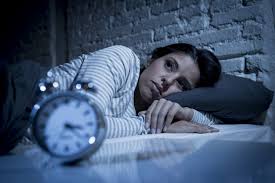Sleep: How it Impacts Us

January 24, 2020
The average person needs about seven to nine hours of sleep at night. Many wonder what would happen if we do not get the required hours, or how can you get yourself to get the amount you need.
No matter what time you go to sleep that next night, you will not get that sleep back. It takes a course of a month at least to try to get it back, nhs.uk says. Lack of sleep can be caused by work, video games, technology, stress, and much more. Endless nights with no sleep can bring much more problems than just mood changes. Some of these problems may include: a foggy mind, accidents on the road, risks of injury increases, and you may start to feel down.
Getting the required amount of sleep can be beneficial to your health. Sleep boosts your immune system that helps you fight off viruses and just normal illnesses. Most people who have been diagnosed with depression or anxiety have been said to get less than six hours of sleep a night, so it helps your mental stability. Increased heart rate can be a cause of sleep deprivation, therefore when you get the amount you need it lowers your chances of getting one of these diseases.
Ways you may be able to get the amount of sleep needed may be to start a nightly routine. Nightly routines could include taking a shower, brushing your teeth, and going to bed by a set time. You can also set a time for you to get ready for bed. If you find it hard to sleep you can go talk to your doctor about it.
Making sure that we get enough sleep is very important to our everyday life. We should all make sure that we are bettering ourselves through our sleeping habits.

